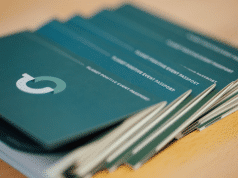Fear of the dark
This is not another article about how to protect yourself against the Coronavirus, nor is it another conspiracy theory about who started it. In times of panic and fear of the pandemic, rational optimism is a rare thing. Bad news travel much faster than good and that is an empirical fact. It’s why stories about cancelled events have flooded the media space of our industry. The current situation is the price we have to pay for constant growth. My heart goes out to every single colleague, who has had to cancel an event because of the situation and I hope he had the event insured. The most resounding stories come from international mega-events with a huge reach. I’m certain that the virus outbreak has drastically changed the way these events will be organised. Law firms will also have their work cut out for them. In the last couple of days, the meetings industry has been turned upside down.
Despite the negative stories, a lot of positive ones have also surfaced. Stories about successfully carried out events and those that have not been cancelled. Confex in London is a great example, as well as IMEX Frankfurt that is going ahead as scheduled.
We, humans, are social beings and we can’t last long without events. That is embedded in our DNA. Just like music, events are a universal language. Ask yourself, what is more exciting, listening to a live concert or an album through your headphones? There is a time and a place for both, but nothing can replace the energy that is shared at events. That energy is priceless and it is the reason why we won’t be throwing in the towel. Moreso, because of the many like-minded event professionals who get goosebumps every time the event is a success and the participants leave satisfied. Lastly, because we contribute greatly to the country’s budget and employ a large number of people. It’s time that we raise our voices and talk about the importance of events. Events that can not be replaced by the many virtual tools which have been swarming my inbox lately.
Instead of catastrophic assessments, we have to adapt to the situation. That means shifting to smaller local and regional events. We will have to plan much more carefully. Now is maybe the time that everyone, who earns a living off of creative work realises that cash cows have to be understood, heard and not just used. Based on some rough evaluations, the creative part of the event budget is only 20%, the rest goes to hoteliers, venues, caterers and logistics companies. If ever, the middle of a global crisis is the time to clear up the dilemma of the meetings egg and chicken.














